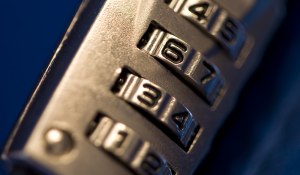- Processes, standards and quality
- Technologies
- Others
Not without reason static passwords are the most popular authentication method. The easiness of deployment, intuitiveness and plainness of usage result in the fact that we use those passwords everywhere i.e. in applications, websites and even in the form of PIN code in cash machines, phones or interphones. But can we safely manage this kind of information? Apparently we can't, because very often we share them between many different services.
Not without reason static passwords are the most popular authentication method. The easiness of deployment, intuitiveness and plainness of usage result in the fact that we use those passwords everywhere i.e. in applications, websites and even in the form of PIN code in cash machines, phones or interphones. But can we safely manage this kind of information? Apparently we can’t, because very often we share them between many different services.



